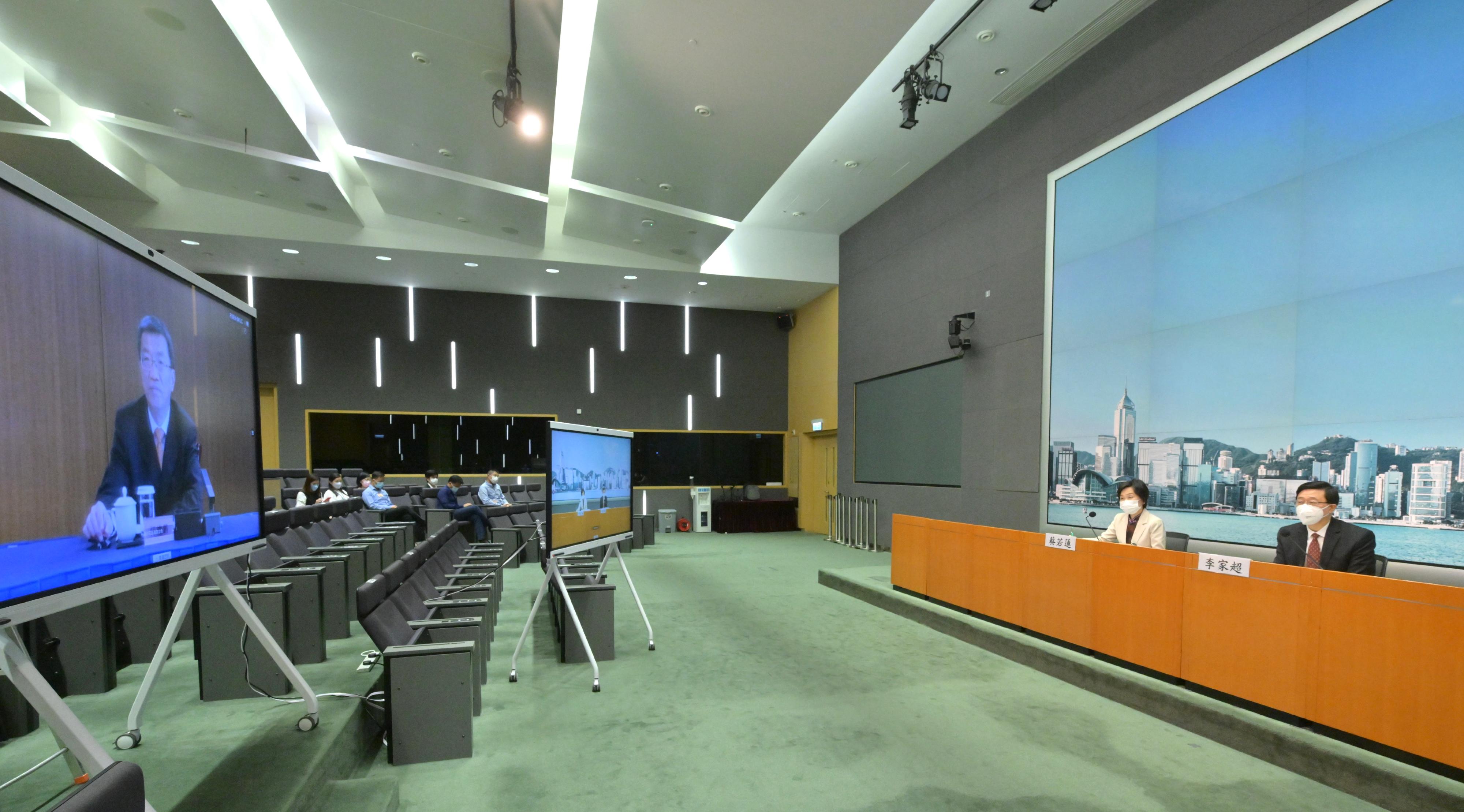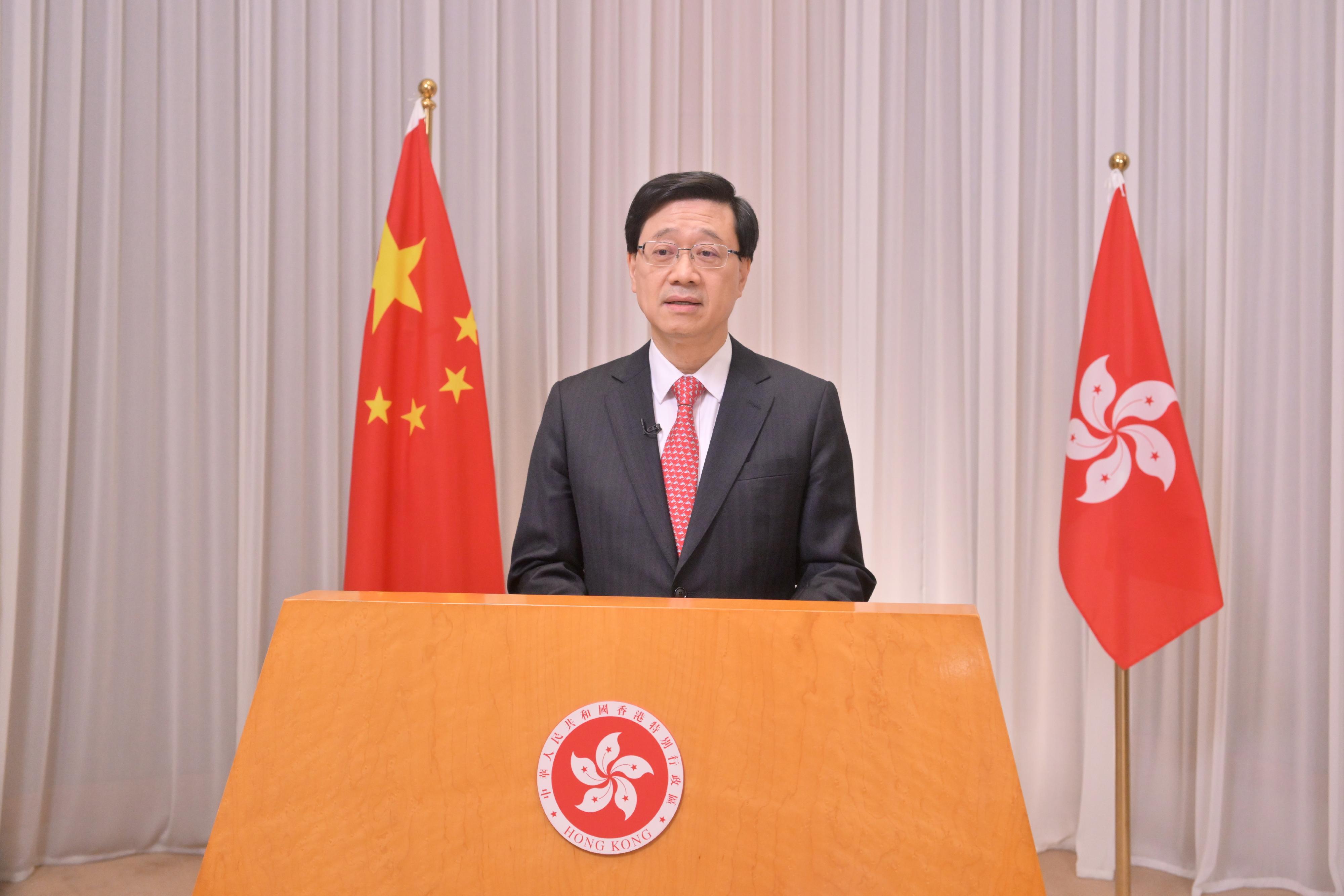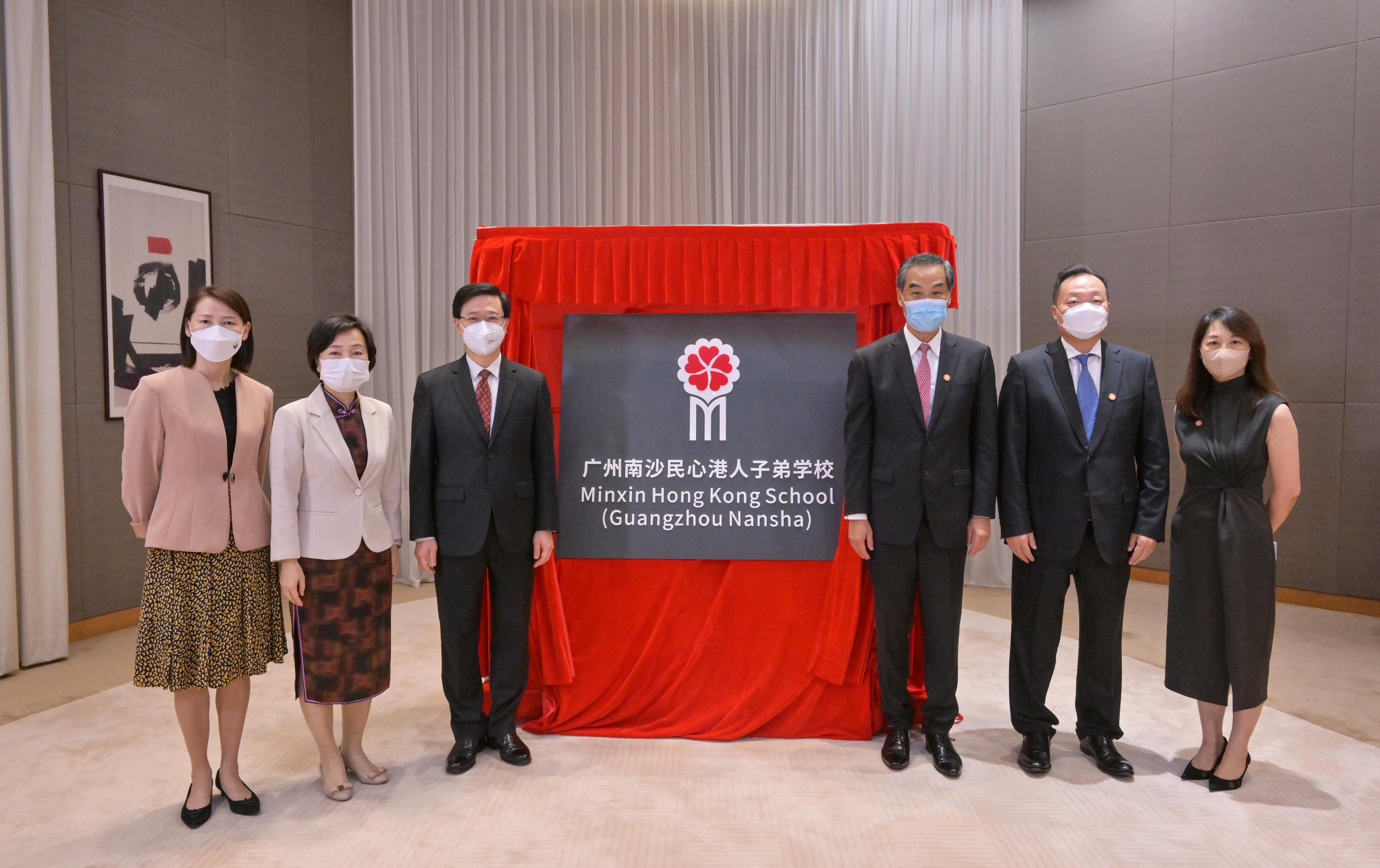The Chief Executive, Mr John Lee, today (September 1) held a video conference on deepening Guangdong-Hong Kong co-operation with the Secretary of the CPC Guangdong Provincial Committee, Mr Li Xi; the Governor of Guangdong Province, Mr Wang Weizhong; the Secretary of the CPC Shenzhen Municipal Committee, Mr Meng Fanli; the Secretary of the CPC Guangzhou Municipal Committee, Mr Lin Keqing; the Mayor of the Shenzhen Municipal Government, Mr Qin Weizhong; and the Mayor of the Guangzhou Municipal Government, Mr Guo Yonghang, to exchange views and discuss issues of mutual interest. Topics included deepening Hong Kong’s co-operation with Guangdong, Guangzhou and Shenzhen, and further promoting the development of the Guangdong-Hong Kong-Macao Greater Bay Area (GBA).
Also attending the meeting were the Chief Secretary for Administration, Mr Chan Kwok-ki; the Financial Secretary, Mr Paul Chan; the Secretary for Constitutional and Mainland Affairs, Mr Erick Tsang Kwok-wai; the Secretary for Health, Professor Lo Chung-mau; the Secretary for Transport and Logistics, Mr Lam Sai-hung; the Secretary for Development, Ms Bernadette Linn; the Secretary for Education, Dr Choi Yuk-lin; and the Permanent Secretary for Innovation, Technology and Industry, Mr Eddie Mak.
The Chief Executive and leaders of the Guangdong Province, Guangzhou and Shenzhen shared their views on further enhancing collaboration. All sides reached consensus on the following subjects:
(1) In terms of enhancing the Guangdong-Hong Kong co-operation mechanism, the Hong Kong Special Administrative Region (HKSAR) Government and the Guangdong Provincial Government will set up 13 working groups to cover major areas of co-operation, including epidemic prevention and resumption of normal travel; the Northern Metropolis; the Nansha Plan; innovation and technology; finance; commerce and trade; youth employment, entrepreneurship and internship; promoting legal and dispute resolution services; and maritime, aviation and logistics. On the Hong Kong side, relevant work of each working group will be led by specific Secretaries of Departments or Directors of Bureaux. Both sides are encouraged to take forward various co-operation items pragmatically under the new co-operation framework and mechanism in order to achieve broad and fruitful results. The working groups will start their work as soon as possible. As for the working group on the Northern Metropolis, it will focus on promoting and co-ordinating work related to the Northern Metropolis to enhance the co-operation between Hong Kong and Guangdong and achieve a greater synergy effect;
(2) The proposal of “pre-departure quarantine” raised by the Hong Kong side, in which Mainland-bound travellers from Hong Kong will undergo quarantine in Hong Kong first before entering Shenzhen in a closed-loop mode to meet the “7+3” quarantine requirement of the Mainland, was supported by the Guangdong and Shenzhen sides. They agreed to set up a working group to discuss the implementation details and report for approval according to relevant procedures before implementation. The Hong Kong side of the working group will be led by the Chief Secretary for Administration;
(3) Guangzhou and Hong Kong will strengthen co-operation on the development of Nansha. The HKSAR fully supports Nansha in developing as a high-standard gateway for opening up within the GBA, whilst expanding the scope of development for Hong Kong and its industries at the same time;
(4) On Shenzhen-Hong Kong co-operation, upon review and consolidation of the current co-operation framework, 19 working groups will be set up to push forward the collaboration in various key areas including innovation and technology, finance, commerce and trade, youth employment and entrepreneurship, and Qianhai. On the Hong Kong front, these working groups will be led by specific Secretaries of Departments or Directors of Bureaux and will start their work soon;
(5) Under the Plan for Comprehensive Deepening Reform and Opening Up of the Qianhai Shenzhen-Hong Kong Modern Service Industry Cooperation Zone, the HKSAR Government supports and looks forward to Qianhai continuing its function on early and pilot implementation and making more specific policy breakthroughs. The HKSAR Government will work hard to promote co-operation between Hong Kong and Shenzhen on both hardware and software including infrastructure and systems, particularly in expediting the development of the northern New Territories. As a result, Hong Kong can seize the opportunities brought about by Qianhai as a modern service industry hub;
(6) In terms of promoting financial opening up and innovation, the HKSAR Government and the Qianhai Authority will jointly promulgate 18 new measures to facilitate the development of cross-boundary business for venture capital and private equity funds, encouraging the funds to seize the immense opportunities arising from the development of the GBA. read more






